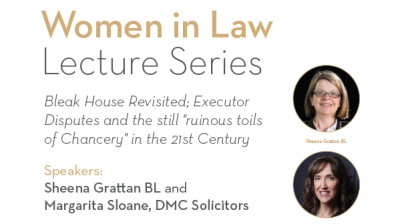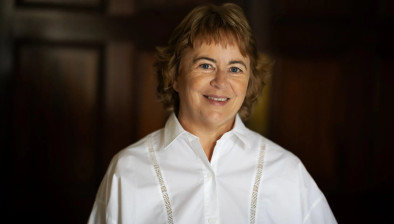High Court: Will destroyed by deceased admitted to probate after solicitor gave incorrect legal advice

The High Court has determined that a will which was revoked by a testator should be admitted to probate because it was only destroyed on foot of incorrect legal advice. The deceased had been told by his solicitor that the destruction of his will would revive a prior will.

About this case:
- Citation:[2022] IEHC 604
- Judgment:
- Court:High Court
- Judge:Ms Justice Nuala Butler
Delivering judgment in the case, Ms Justice Nuala Butler considered the doctrine of dependent relative revocation and held that the deceased intended to revoke his entire will at the time of its destruction. As such, it could not be said that he only intended to partially revoke the will and the court admitted the revoked will to probate.
Background
The deceased was a gentleman who did not have a spouse or children at the time of his death in February 2021. His estate was valued at over €250,000. In September 2012, the deceased executed a will with his solicitor, where he bequeathed most of his estate to four named beneficiaries. One of the beneficiaries was known as M.
Each of the beneficiaries received a “one-quarter interest” in the estate, although no member of the deceased’s immediate family received anything from the estate. However, in 2015, the deceased changed his will to include a fifth beneficiary, known as H. Consequently, each beneficiary received a “one-fifth interest” in the residuary of the estate under the 2015 will.
Shortly after executing the 2015 will, the deceased fell out with H and decided to remove her as a beneficiary to his will. He attended with his solicitor, who recorded a file memo outlining the general reason for the deceased’s change of mind. The deceased confirmed that he wished to revive the 2012 will which intended four beneficiaries to inherit from the estate.
Critically, the solicitor advised that the 2012 will would be effective if the 2015 will was destroyed. The deceased proceeded to tear up the 2015 will in front of his solicitor.
Following the death of the testator, there was some confusion on the part of the solicitor as to which will was effective. Ultimately, it was determined that the estate should be administered on foot of the 2012 will and application for a grant of probate of the 2012 will was filed on behalf of the executors in June 2021.
However, H claimed an entitlement to one-fifth of the estate under the 2015 will. It was noted that the previous advice of the deceased’s solicitor was incorrect and the 2012 will could only be revived by the re-execution of said will or by a duly executed codicil.
In September 2021, a granted of probate for the 2012 will issued. Following consultation with counsel, the executors determined that it was necessary to apply to the High Court to revoke, cancel and recall the grant of probate pursuant to section 26(2) of the Succession Act 1965, and to admit the 2015 will to probate.
In opposing the application, M submitted that the clear intention of the deceased was to remove H as a beneficiary to the will and reviving the 2015 will would therefore be unsatisfactory. It was also submitted that the deceased on intended a partial revocation of the 2015 will, insofar as it removed H as a beneficiary. As such, it was said that the entire 2015 will did not need to be revived.
High Court
Ms Justice Butler began by noting that the parties agreed that the legal advice given to the deceased was incorrect and there were no circumstances in which a revoked will could be automatically revived.
The court described the doctrine of dependant relative revocation as allowing a court to hold that a prima facie valid revocation was not effective having regard to the circumstances of the revocation. In In The Goods of Irvine [1919] 2 IR 485, it was noted that the intention of the testator was an important factor when considering why they revoked a will and there had to be an element of mistaken belief or misunderstanding for the doctrine to apply.
In assessing whether the doctrine could apply, the court held that it could not analyse whether the revocation gave effect to the deceased’s general testamentary intentions because the scheme of the Succession Act 1964 was dependent on intention being ascertained only from executed wills and codicils.
The court held that there was some merit in the argument that the deceased did not intend to revoke his entire will. However, it was held that the 2015 will was entirely revoked because, at the time of destruction, the deceased believed that revoking the entire will would revive the 2012 will. Partial revocation would not have achieved the outcome of the solicitor’s advice.
It was accepted that this was an unsatisfactory situation because H stood to gain when the deceased’s express intention was to remove her as a beneficiary. It was noted that any reduction in M’s share of the estate could be dealt with in separate proceedings against the solicitor.
Conclusion
The court concluded that the doctrine of dependant relative revocation applied to revive the 2015 will as it had been destroyed in error on foot of incorrect legal advice.
A photocopy of the 2015 will was admitted to probate and the court cancelled the grant of probate for the 2012 will.
In the Matter of the Estate of John Coughlan, Deceased [2022] IEHC 604










